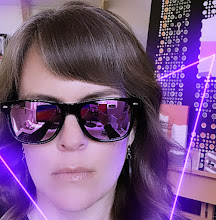Summer reading lists always leave me a bit mystified. All this gearing up to read more during a two- to three-month period that isn't really any less busy than the rest of the year. I mean, I still have to work and take care of my kids, right? That said, I did resolve to read more this year. "Well-read" is not necessarily a phrase I'd use to describe myself (although I did read 'Of Mice and Men' in the 4th grade). So far I've read some really great stuff. I thought I'd share a couple of suggestions here today.
First up: Rebecca Solnit's 'A Field Guide to Getting Lost'. Overall I really enjoyed it. There were some really amazing passages and some that were a little more meandering, but it averaged out to a great non-fiction read, especially if you're into ideas around place, travel, loss, and so on. My favorite passage is in the section called 'The Blue of Distance,' where Solnit compares running to film:
Movies are made out of darkness as well as light; it is the surpassingly brief intervals of darkness between each luminous still image that make it possible to assemble the many images into one moving picture. Without that darkness, there would only be a blur. Which is to say that a full-length mirror consists of half an hour or an hour of pure darkness that goes unseen. If you could add up all the darkness, you would find the audience in the theater gazing together at a deep imaginative night. It is the terra incognita of film, the dark continent on every map. In a similar way, a runner's every step is a leap, so that for a moment he or she is entirely off the ground. For those brief instants, shadows no longer spill out from their feet, like leaks, but hover below them like doubles, as they do with birds, whose shadows crawl below them, caressing the surface of the earth, growing and shrinking as their makers move nearer or farther from that surface. For my friends who run long distances, these tiny fragments of levitation add up to something considerable; by their own power they hover above the earth for many minutes, perhaps some significant portion of an hour or perhaps far more for the hundred-mile races. We fly; we dream in darkness; we devour heaven in bites too small to be measured.Incredible, no? I look forward to reading more of what Solnit has written. Next up, though, and speaking of "small bites", I wanted to tackle something I could read in smaller chunks of time, since I typically only read during the few minutes between going to bed and giving in to sheer exhaustion (which is why it took me over three months to finish one book). So I finally read Miranda July's collection of short stores titled 'No One Belongs Here More Than You,' a book that has been on my bookshelf since shortly after it was published in 2005 (I know, right?!).
Oh man, it was so good. So entertaining. Full disclaimer: I'm a huge Miranda July fan. There's really no project, piece of writing, performance, or film of her's I haven't totally loved. That said, I think you'll like it even if you don't dig her other work as much as I do. I was talking to a colleague recently who isn't as into her work as a performance artist, for example, but enjoys her writing. My favorite story was 'The Swim Team,' in which the main character teaches a group of adults how to swim without having access to a pool. It's hilarious in a uniquely Miranda July-esque way. I also loved this passage from 'Ten True Things,' when the narrator attends a beginning sewing class at an adult education center after learning that her boss' wife is taking the class, a woman she feels she knows pretty well, despite having never met her, because she talks to her on the phone almost daily. At her first class she observes:
It was not immediately obvious who Ellen was because we did not play any name games at the start of the class. Past a certain age, they give up on name games, which is regrettable for someone like me who loves anything that involves going around a circle and saying something about yourself. I wish there was a class where we could just keep going around the circle, around and around, until we had finally said everything about ourselves.Another funny exchange is in the story 'How To Tell Stories to Children.' This isn't really central to the plot or character development or anything; it's just funny because it's so mundane. The main character runs into another character at Trader Joe's:
He said his bread always god moldy before he could finish the loaf. I said he should freeze the bread to prevent this problem. He said, Won't that ruin the bread? I said, Not if you're making toast with it. He said, You can just toast it frozen? And I said, Yep.Yep. It's true, too. You can toast bread that's frozen.






No comments:
Post a Comment